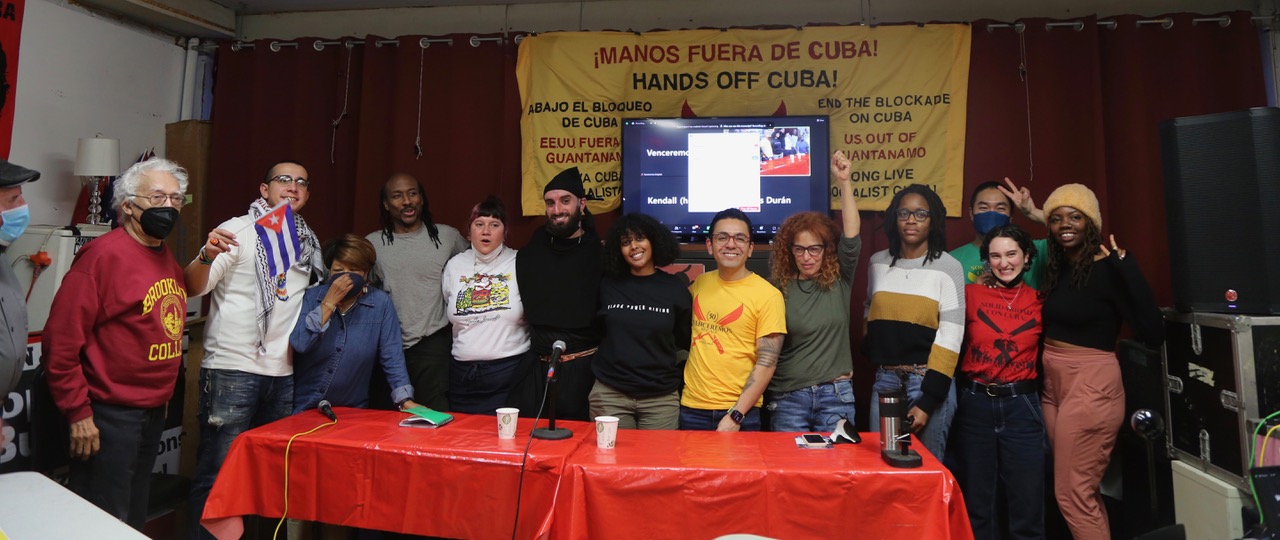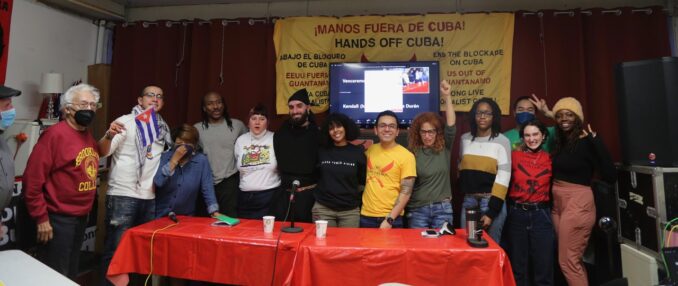

Members of the New York/New Jersey Committee of the Venceremos Brigade gave moving accounts of their experiences on the 51st Venceremos Brigade in Cuba at a Feb. 26 hybrid meeting at the Solidarity Center in New York.


Yohana Beyene said one of the highlights was learning about Cuba’s new Family Code, which was approved in a September referendum. It expands the definition of what is a family; the code gave same-sex couples the right to marry, adopt children and legalize surrogacy. More than 80,000 consultations were held with the Cuban people in developing the code.
Beyene said that when Brigadistas asked how Cubans managed to overcome reactionary views to this radical reform, the Cubans explained that the “seeds of consciousness,” planted by the revolution and Cuban government, allowed people to see it as an extension of the ideals of Cuban culture and revolution.
Richie Marino recounted his discussions with the community outside the Guantanamo military base, who said they would like people in the U.S. to fight to lift the blockade. “We can give everyone in our society free health care, free education, and ensure everyone has a roof over their heads. Imagine how much more we could accomplish when the blockade is lifted?” they had told Marino.
Summer Taccetta stated: “The biggest highlight was the opportunity to speak to people experiencing a cultural revolution, who are able to see so much, to talk about how we are seen.”
The speakers described how art, dance and music is accessible to everyone in the country and that classes are provided for free at cultural community centers. They noted how antiracism is practiced, from providing medical education to assisting people of African descent to become doctors, including Haitians and people from the Black community in the U.S.
Cuba sent 30,000 people to assist in the historic African liberation struggles and has promoted people of African descent in leadership roles in all Cuban institutions. They said there are still problems in Cuba, but for example, unlike in the U.S., transgender people are not killed, and no one is left homeless. “In Cuba any problem is a problem that needs to be solved communally,” Marino said.
Toni Arenstein noted that Cuba developed the drug Heberprot-P, human recombinant epidermal growth factor, which is 94% effective in preventing amputations in people with diabetic foot ulcers. Arenstein noted that amputation is a serious complication of diabetes, which in the U.S. mostly impacts Black people, because of the lack of adequate health care. “If it weren’t for the blockade, people in the U.S. would have access to this medicine,” she said, which has been available in Cuba since 2006.
— Report and photo by Brenda Ryan
The epic struggle of the Palestinian people against the full weight of U.S. imperialism and…
The following report comes from the Bronx Anti-War Coalition organizers on a protest held in…
In the Canadian federal elections held on April 28, the Liberals won with 169 seats…
The following is Part 2 of a talk given by the author to a meeting…
Boston Students, professors and workers are confronting the Trump administration’s fascist crackdown at universities across…
Philadelphia Within days of Swarthmore students reviving a pro-Palestinian encampment on April 30, police arrested…